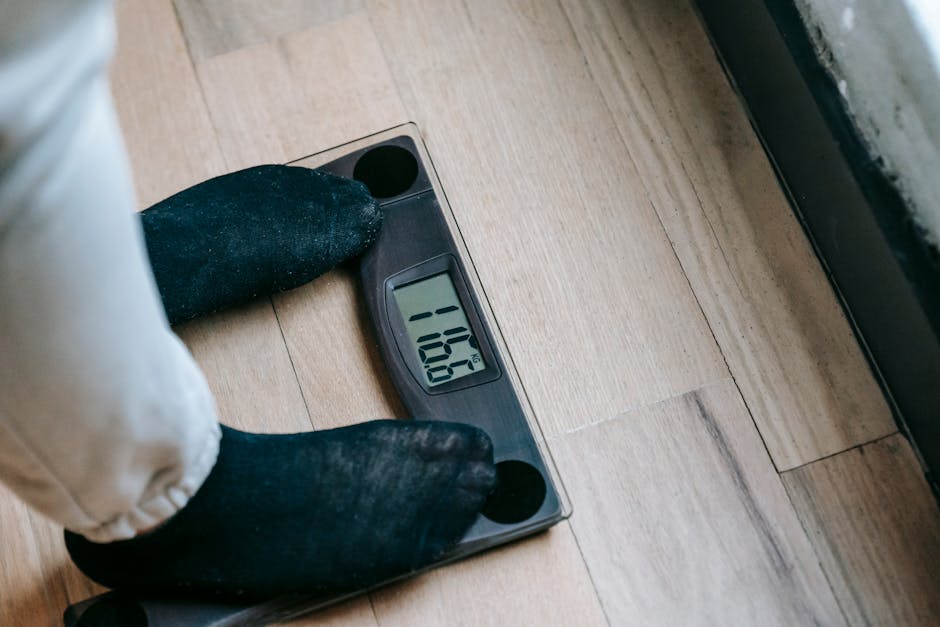Introduction to Weight Control Pills
When you're trying to lose weight, it can feel like you're doing everything right but still not seeing results. Enter weight control pills, which might seem like the quick fix you've been looking for. These pills come in various types, each claiming to help in different ways. Some aim to suppress your appetite, making you feel less hungry. Others work by blocking the absorption of fat or carbs, and there are those designed to boost your metabolism, making your body burn more calories. Remember, though, while they can be helpful, they're not magic. For best results, you should combine them with a healthy diet and regular exercise. It's also crucial to talk to your doctor before trying any weight control pills, especially if you have health concerns or are on medication. This chat is essential to make sure the pills won't negatively interact with anything else you're taking or harm your health. So, think of weight control pills as a potential tool in your weight loss toolbox, but not the only one.

Understanding How Weight Control Pills Work
Weight control pills seem like a quick fix, right? But let's break down how they actually work. Mostly, these pills focus on three main things: reducing appetite, increasing fat burn, or lowering the absorption of nutrients like fat. By reducing your hunger, you might eat less which could lead to weight loss. Then, there are pills that rev up your body's fat-burning process, helping you use more energy even when you're at rest. Lastly, some pills make it so your body doesn’t take in all the fat from the food you eat, meaning fewer calories for you. It's not magic, it's science. But remember, they're not a standalone solution. Pairing these pills with healthy eating and regular exercise is key to making them work for your weight management goals.
The Role of Weight Control Pills in Weight Management
Weight control pills, often seen as a quick fix, are not a magic solution but can be part of a comprehensive weight management plan. They work by curbing your appetite, increasing your metabolism, or blocking the absorption of fat. However, it's crucial to understand that these pills should support, not replace, a healthy diet and regular exercise. The pills can give you an edge, but without lifestyle changes, their effects are short-lived. Before considering weight control pills, consult a healthcare professional. They can guide you on the right type, considering any medical conditions or medications that could interact negatively. Remember, sustainable weight loss is a marathon, not a sprint.
Pros and Cons of Using Weight Control Pills
Weight control pills might seem like a magic solution for shedding those extra pounds, but it's not that simple. Let's break down the pros and cons to see if they fit into your weight management plan. Pros first. These pills can kick-start your weight loss journey, especially if you've hit a plateau. They work by either making you feel full quicker, reducing the amount of fat your body absorbs, or increasing your metabolism. Some people see noticeable results, which can be a big motivation boost. Now, onto the Cons. Weight control pills aren't a silver bullet. They can have side effects like jitteriness, headaches, or digestive issues. Plus, they're not effective without a healthy diet and regular exercise. And here's the kicker: the results might not last if you rely solely on the pills without changing your lifestyle. So, weight control pills? Not a miracle cure but could be a tool in your arsenal with careful consideration.
Key Ingredients Found in Weight Control Pills
Weight control pills are packed with various ingredients, each aiming to help you shed those extra pounds. At the core, there are a few key players you should know about. Caffeine, the same stuff in your morning brew, speeds up your metabolism, giving your body a little extra burn. Then there’s Green Tea Extract, another metabolism booster with a side of antioxidants. Garcinia Cambogia, a tropical fruit extract, claims to block your body from making fat. Add to the mix Conjugated Linoleic Acid (CLA), thought to cut appetite and boost fat breakdown. Finally, Glucomannan, a dietary fiber, makes you feel full, so you eat less. These ingredients might sound promising, but it's crucial to approach with caution and consult a healthcare professional before starting any new supplement. Remember, there's no magic pill for weight loss, and these supplements are best used as part of a broader lifestyle change including diet and exercise.
Real People, Real Results: Testimonials and Studies
People often wonder if weight control pills really deliver on their promises. The answer isn't straightforward, but testimonials and studies shed some light on their effectiveness. Many individuals who have tried these pills share stories of significant weight loss, increased energy, and a boost in confidence. For example, John, a 35-year-old office worker, found that incorporating a weight management pill into his routine helped him shed 20 pounds over six months without making dramatic changes to his diet or exercise regime. Similarly, Sarah, a 28-year-old teacher, reported feeling less hungry throughout the day, which helped her lose 15 pounds.
However, it's important to approach these personal stories with a critical mind. Not everyone will experience the same benefits, and the success of weight control pills can vary widely from person to person. Scientific studies offer a broader perspective. A review published in the Journal of Obesity found that certain weight loss supplements showed promise in trials, leading to an average weight loss of 5-10% of body weight over 12 months. Yet, the researchers emphasized the need for longer studies to understand the long-term effects and safety of these supplements.
When considering weight control pills, it's essential to look beyond the hype and examine real-life experiences and scientific evidence. Remember, these pills can supplement your weight loss efforts, but they're not a magic solution. A balanced diet and regular exercise remain key components of any successful weight management plan.
Side Effects and Safety Considerations
When you're thinking about weight control pills, it's smart to look at the whole picture, not just the promising results. Let's dig into the side effects and safety bits you need to know. First off, your body might react in ways you didn't expect. We're talking about things like feeling jittery, having trouble sleeping, or maybe even getting a dry mouth. These pills can also mess with your digestion, leading to problems like constipation or diarrhea. Now, it gets more serious for some folks, especially those with heart conditions. These pills can hike up your blood pressure or speed up your heartbeat. And if you've got issues with your liver or kidneys, tread carefully. These pills can make those problems worse. The bottom line? Chat with your doctor first. They can help you weigh the pros and cons based on your health. Remember, what works for your buddy might not work for you. So, stay informed and stay safe.
How to Choose the Right Weight Control Pills for You
When thinking about weight control pills, it's essential to do your homework. First off, understand there's no magic pill that makes extra pounds vanish overnight. Effective weight loss involves a healthy diet, regular exercise, and the right mindset. That said, some pills can give you a nudge in the right direction. Here's how to choose wisely:
First, look for pills backed by real science. Check out ingredients that scientific studies have shown to help with weight loss—stuff like green tea extract or CLA (conjugated linoleic acid). These aren't miracle solutions, but research suggests they can help a bit.
Next, consider your health conditions. Some weight control pills can mess with existing health issues or medications. So, always chat with your doctor before starting any new pill. They know your health history and can guide you to a safe choice.
Lastly, manage your expectations. These pills aren’t a free pass to eat whatever you want and skip the gym. Think of them as a support tool, not a solution all by themselves. They work best when you’re also eating healthy and staying active. Remember, losing weight is a marathon, not a sprint. Have patience and keep at your goals consistently.
Incorporating Weight Control Pills into a Healthy Lifestyle
When you're aiming to drop some pounds, weight control pills can sound like a quick fix. But here's the deal: they work best when you pair them with a healthy lifestyle. Think of these pills not as a solo player but as part of a team. Eating a balanced diet, staying active, and getting enough sleep form the foundation. Then, weight control pills might kick things up a notch, boosting your efforts.
First things first, always chat with your doctor before starting any pill. They know your health story and can guide you towards the right choice. And remember, these pills aren't magic. They need you to put in the work too. Eat those veggies, move your body, and catch enough Zs. That way, you're attacking weight loss from all angles, with the pills as your secret extra push. Just keep it realistic and stay patient; health gains are more of a marathon than a sprint.
Conclusion: Completing Your Weight Management Puzzle
Weight control pills might seem like a quick fix, but they should not be the first tool you reach for. Remember, these pills can be useful, but they work best when combined with a healthy diet and regular exercise. There's no magic pill that lets you eat whatever you want and still lose weight. It's all about balance. Before considering weight control pills, try adjusting your diet and adding in some physical activity. If you've tried these steps and still feel stuck, then a conversation with a healthcare provider about weight control pills might be the next step. Consider these pills as one piece of the puzzle, not the whole solution. Managing your weight effectively requires a mix of good nutrition, physical activity, and mental wellness strategies. Keep your expectations realistic, and remember that gradual changes often last the longest.

